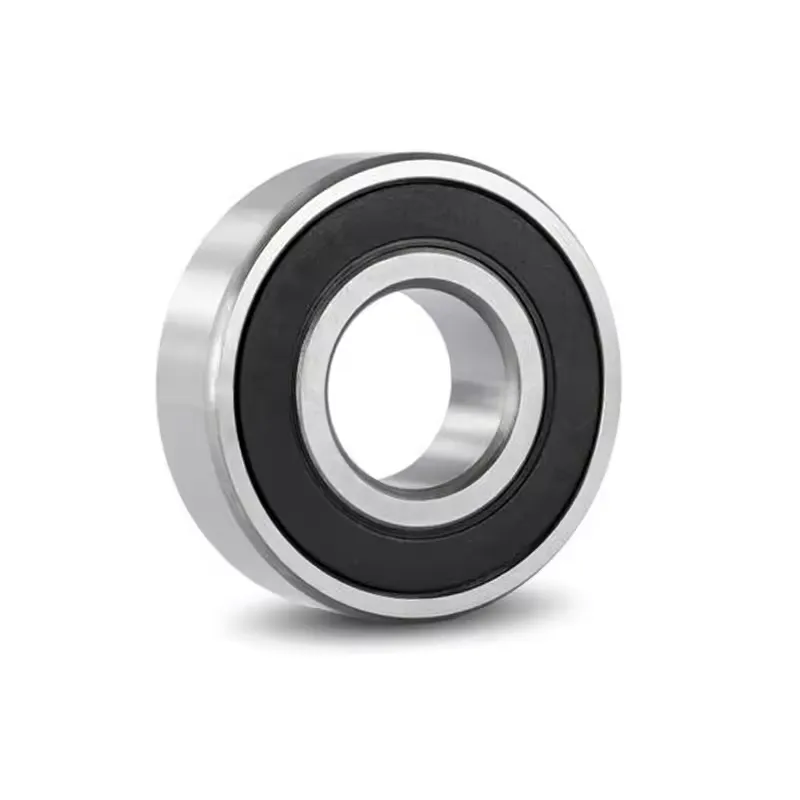Jul . 11, 2024 10:29 Back to list
Different types of bearings commonly used in manufacturing induction motors for optimal performance
When it comes to induction motors, the type of bearing used plays a crucial role in ensuring smooth and efficient operation. Bearings are essential components that support rotating elements within the motor, allowing them to move freely while minimizing friction and wear. Manufacturers of induction motors carefully select the type of bearing based on factors such as load capacity, speed, and the operating environment.
One of the most common types of bearings used in induction motors is the ball bearing. Ball bearings consist of a series of hardened steel balls that roll between two rings or races, reducing friction and facilitating smooth rotation. Ball bearings are known for their high load capacities and are well-suited for applications where moderate to high speeds are required. They are also relatively low-maintenance, making them a popular choice for induction motor manufacturers.
Another common type of bearing used in induction motors is the roller bearing. Roller bearings have cylindrical or tapered rollers that distribute the load evenly across the bearing surfaces. This design allows roller bearings to handle heavier loads and higher speeds compared to ball bearings. Roller bearings are often used in industrial applications where the motor is subject to significant radial and axial loads

types of bearing used in induction motor manufacturer. In addition to ball and roller bearings, some manufacturers may opt for sleeve bearings in certain induction motor designs. Sleeve bearings, also known as plain bearings, consist of a cylindrical sleeve that supports the rotating shaft. Sleeve bearings rely on a thin layer of lubricating oil or grease to reduce friction and prevent wear. While sleeve bearings have lower load capacities compared to ball and roller bearings, they are often preferred for their simplicity and cost-effectiveness. The choice of bearing type in an induction motor also depends on the specific requirements of the application. For example, high-precision applications may require bearings with tighter tolerances and improved stability, such as angular contact ball bearings or cylindrical roller bearings. In harsh operating environments with high temperatures or corrosive fluids, manufacturers may use specialized bearings made from materials like stainless steel or ceramic to ensure longevity and reliability. Overall, the selection of bearing type in induction motor manufacturing is a critical decision that can impact the motor's performance, efficiency, and lifespan. By understanding the unique characteristics of each bearing type and considering the specific needs of the application, manufacturers can choose the right bearing that will ensure optimal operation and reliability for their induction motors.

types of bearing used in induction motor manufacturer. In addition to ball and roller bearings, some manufacturers may opt for sleeve bearings in certain induction motor designs. Sleeve bearings, also known as plain bearings, consist of a cylindrical sleeve that supports the rotating shaft. Sleeve bearings rely on a thin layer of lubricating oil or grease to reduce friction and prevent wear. While sleeve bearings have lower load capacities compared to ball and roller bearings, they are often preferred for their simplicity and cost-effectiveness. The choice of bearing type in an induction motor also depends on the specific requirements of the application. For example, high-precision applications may require bearings with tighter tolerances and improved stability, such as angular contact ball bearings or cylindrical roller bearings. In harsh operating environments with high temperatures or corrosive fluids, manufacturers may use specialized bearings made from materials like stainless steel or ceramic to ensure longevity and reliability. Overall, the selection of bearing type in induction motor manufacturing is a critical decision that can impact the motor's performance, efficiency, and lifespan. By understanding the unique characteristics of each bearing type and considering the specific needs of the application, manufacturers can choose the right bearing that will ensure optimal operation and reliability for their induction motors.
Latest news
-
25MM 2 BOLT UCFLX05-14 Flange bearing unit( oval)
NewsMar.07,2025
-
4 bolt UCF 200 series Pillow block bearings
NewsMar.07,2025
-
25MM 2 BOLT UCFLX05-14 Flange bearing unit( oval)
NewsMar.07,2025
-
UCF216-50 4-Bolt Flange Housing Square Bearing
NewsMar.07,2025
-
25MM 2 BOLT UCFLX05-14 Flange bearing unit( oval)
NewsMar.07,2025
-
spherical roller bearing material exporter
NewsMar.07,2025





